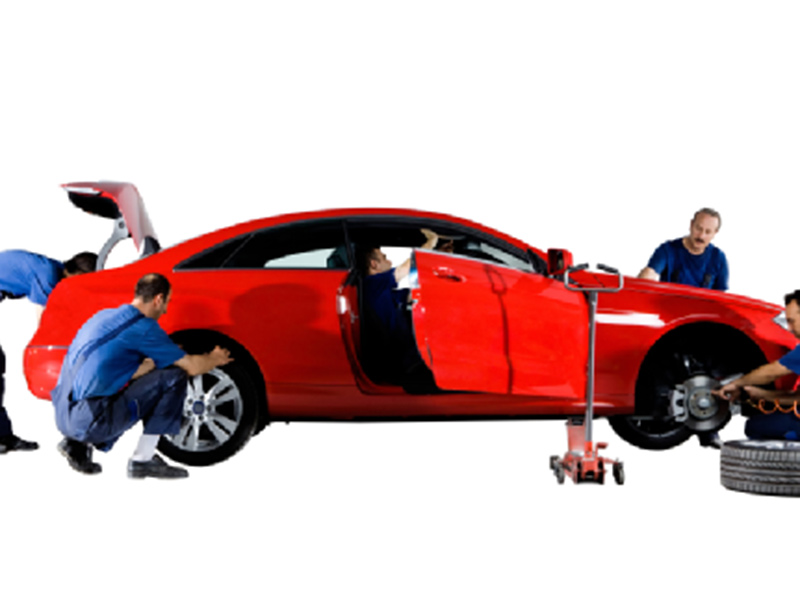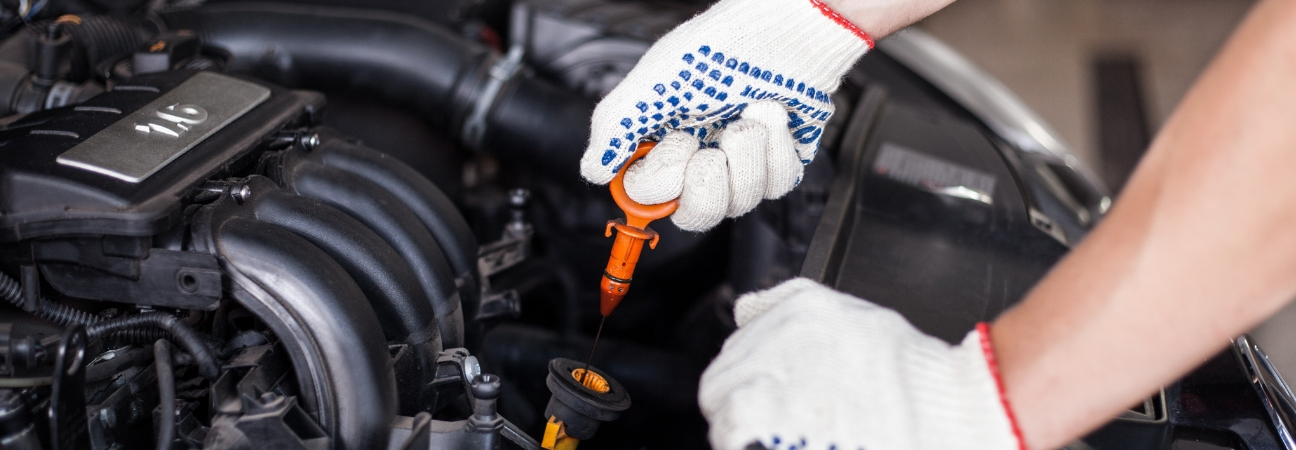All Categories
Featured
When your cars and truck starts to overheat, it can be a difficult and frightening circumstance. Understanding just how to respond in these minutes and taking actions to avoid future getting too hot can help shield your vehicle and avoid costly fixings. Here's what to do if your car overheats and just how to stop it from taking place once again.
What to Do If Your Car Gets too hot. Draw Over and Shut Off the Engine The first point you need to do if your car starts to overheat is to pull over to a secure area, such as a car park or the shoulder of the road. Turn off the engine promptly to protect against additional damage. Running an overheated engine can cause irreversible damages to the interior parts, consisting of the radiator and cylinder heads.
Permit the Engine to Cool off After switching off the engine, offer it time to cool down. Opening up the hood can aid release warmth, yet beware as the engine and surrounding areas might still be extremely hot. Wait a minimum of 15-20 mins before attempting any type of additional actions.
Inspect the Coolant Level Once the engine has actually cooled down, inspect the coolant level. You can include coolant or water to the radiator or coolant reservoir if it is low. Never ever open the radiator cap while the engine is warm, as this can trigger warm coolant to spray and shed you. Constantly wait until the engine is amazing before opening up the cap.
Check for Leakages or Broken Hoses While you are examining the coolant degree, check for any type of visible leakages or damaged hose pipes under the hood. Cracked or broken pipes can cause coolant to leak out, causing an overheating engine. You may need to call for roadside help or a tow to get the automobile to a technician. if you identify any concerns.
Ask For Support If you can't identify the source of the concern or the getting too hot continues after completing the coolant, it's finest to ask for roadside help. Driving with an overheated engine can create extreme damages to your car and leave you stranded.
![]()
Exactly How to stop Your Auto from Getting too hot. Examine Coolant Degrees Frequently Among the primary reasons of overheating is reduced coolant degrees. Make it a routine to inspect your coolant degrees on a regular basis and cover them off if needed. Refer to your lorry's handbook for the suggested coolant mix and upkeep intervals.
Check Your Radiator Your radiator plays an important function in maintaining the engine cool. Guarantee there are no blockages or debris obstructing air flow through the radiator. If your radiator is clogged or harmed, it might not function correctly, leading to getting too hot.
Maintain Your Cooling System The cooling down system ought to be flushed and refilled occasionally. Gradually, coolant can come to be infected or shed its performance. Adhere to the supplier's referrals for flushing the system, normally every 30,000 to 50,000 miles.
Monitor the Thermostat and Water Pump The thermostat controls the temperature of the engine, while the water pump distributes coolant with the engine. It can trigger the engine to get too hot if either of these elements fails. Have your mechanic check the thermostat and water pump during routine maintenance.
Prevent Overloading the Vehicle Overloading your automobile, specifically on hot days or lengthy journeys, can strain the engine and the air conditioning system. Bear in mind your vehicle's weight restrictions and attempt to prevent lugging hefty loads, specifically when driving in severe temperature levels.
Drive with Care Aggressive driving, such as speeding or quick acceleration, can increase engine anxiety and warm manufacturing. Reduce, particularly on hot days or when driving up high inclines, to decrease the danger of getting too hot.
![]()
Verdict. If your auto gets too hot can protect against further damages to your engine and assist you handle the scenario safely, recognizing what to do. By frequently inspecting your coolant degrees, checking the radiator and tubes, and preserving the cooling system, you can reduce the risk of overheating. With positive care and proper upkeep, your car will certainly remain in good problem, guaranteeing you remain secure and stay clear of costly repair services later on.
What to Do If Your Car Gets too hot. Draw Over and Shut Off the Engine The first point you need to do if your car starts to overheat is to pull over to a secure area, such as a car park or the shoulder of the road. Turn off the engine promptly to protect against additional damage. Running an overheated engine can cause irreversible damages to the interior parts, consisting of the radiator and cylinder heads.
Permit the Engine to Cool off After switching off the engine, offer it time to cool down. Opening up the hood can aid release warmth, yet beware as the engine and surrounding areas might still be extremely hot. Wait a minimum of 15-20 mins before attempting any type of additional actions.
Inspect the Coolant Level Once the engine has actually cooled down, inspect the coolant level. You can include coolant or water to the radiator or coolant reservoir if it is low. Never ever open the radiator cap while the engine is warm, as this can trigger warm coolant to spray and shed you. Constantly wait until the engine is amazing before opening up the cap.
Check for Leakages or Broken Hoses While you are examining the coolant degree, check for any type of visible leakages or damaged hose pipes under the hood. Cracked or broken pipes can cause coolant to leak out, causing an overheating engine. You may need to call for roadside help or a tow to get the automobile to a technician. if you identify any concerns.
Ask For Support If you can't identify the source of the concern or the getting too hot continues after completing the coolant, it's finest to ask for roadside help. Driving with an overheated engine can create extreme damages to your car and leave you stranded.

Exactly How to stop Your Auto from Getting too hot. Examine Coolant Degrees Frequently Among the primary reasons of overheating is reduced coolant degrees. Make it a routine to inspect your coolant degrees on a regular basis and cover them off if needed. Refer to your lorry's handbook for the suggested coolant mix and upkeep intervals.
Check Your Radiator Your radiator plays an important function in maintaining the engine cool. Guarantee there are no blockages or debris obstructing air flow through the radiator. If your radiator is clogged or harmed, it might not function correctly, leading to getting too hot.
Maintain Your Cooling System The cooling down system ought to be flushed and refilled occasionally. Gradually, coolant can come to be infected or shed its performance. Adhere to the supplier's referrals for flushing the system, normally every 30,000 to 50,000 miles.
Monitor the Thermostat and Water Pump The thermostat controls the temperature of the engine, while the water pump distributes coolant with the engine. It can trigger the engine to get too hot if either of these elements fails. Have your mechanic check the thermostat and water pump during routine maintenance.
Prevent Overloading the Vehicle Overloading your automobile, specifically on hot days or lengthy journeys, can strain the engine and the air conditioning system. Bear in mind your vehicle's weight restrictions and attempt to prevent lugging hefty loads, specifically when driving in severe temperature levels.
Drive with Care Aggressive driving, such as speeding or quick acceleration, can increase engine anxiety and warm manufacturing. Reduce, particularly on hot days or when driving up high inclines, to decrease the danger of getting too hot.

Verdict. If your auto gets too hot can protect against further damages to your engine and assist you handle the scenario safely, recognizing what to do. By frequently inspecting your coolant degrees, checking the radiator and tubes, and preserving the cooling system, you can reduce the risk of overheating. With positive care and proper upkeep, your car will certainly remain in good problem, guaranteeing you remain secure and stay clear of costly repair services later on.
Latest Posts
Explore Brake Repair & More: Full Auto Care Solutions from Montclare Auto Repair
Published en
1 min read
Why Consistent Auto Maintenance at Montclare Auto Repair Keeps Your Wallet Happy
Published en
1 min read
Unlock Your Financial Partner at WyHy – Top Benefits for Your Money Goals
Published en
1 min read
More
Latest Posts
Explore Brake Repair & More: Full Auto Care Solutions from Montclare Auto Repair
Published May 29, 25
1 min read
Why Consistent Auto Maintenance at Montclare Auto Repair Keeps Your Wallet Happy
Published May 28, 25
1 min read
Unlock Your Financial Partner at WyHy – Top Benefits for Your Money Goals
Published May 25, 25
1 min read